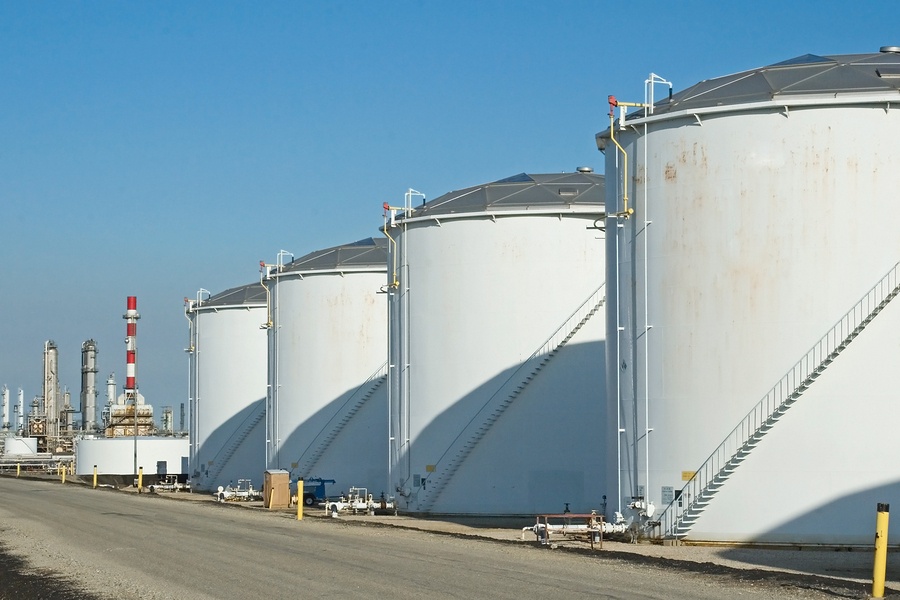Storage Tank Design, Construction & Maintenance
Details :
Storage Tank Design, Construction & Maintenance is a
course designed to offer the participants an insight of how tank farm storage
tanks are designed, constructed, operated, inspected and maintained. This
training course provides a comprehensive detailed overview of the American
Petroleum Institute API-650, API 620 and API 2610 specifications as well as the
API 653 inspection standard.
Storage tanks are containers that hold flammable liquids, or
compressed flammable gases for short, medium or long-term storage. Crude oil or
crude product storage tank design and construction, as used in industries such
as petroleum production, refinery tank farms, intermediate product storage
including LPG, and product transfer operations, petrochemicals, as well as
other industries consuming or producing flammable liquids, will be covered. The
training course will highlight the most recent revisions and upcoming changes
in the aforementioned standards and will in addition include essential storage
tank technology not covered by these standards.
The aim of this comprehensive training course is to provide
the delegates with a sound understanding of the main features of flammable
fluids’ storage, in above ground storage tanks, that are available in many
shapes and sizes and includes: vertical and horizontal, cylindrical; open or
closed with or without floating roofs. In addition, you will learn the
fundamentals of tank terminal design, construction, operation, maintenance, and
inspection.
At the end of this training course, participants will:
•Learn about tank design features and components
•Have an understanding of storage tank construction methods
•Know the various materials of construction associated with
storage tanks
•Grasp the relevant types of storage tanks and their associated
terminology
•Assess storage tank performance
•Appreciate the governing equations associated with tank
design
•Learn about tank safety issues
•Learn about tank standards and codes
•Appreciate failure mechanisms including corrosion
•Learn about methods of tank protection, including linings
and cathodic protection
•Have an understanding of different methods of inspection
This training course is intended for tank farm and refinery employees or engineers who are required to select and or are involved in tank design, as well as anyone working in crude oil and or product storage facility. It is also intended for, but not limited to, professionals involved in handling, loading, or discharging of oil and gas cargoes.
DAY 1
Storage Tanks Introduction
•Review of Energy Production and Consumption
•Basic properties and characteristics of petroleum and
products in storage
•Storage of flammable liquids - safety & risk
•Fire Fighting & Fire Protection
•Handling oils spills and other emergencies
•Introduction and uses of Storage Tanks
DAY
2
Tank
Design Standards and Codes
•API
Standard 650 Design and construction of new storage tanks
•API
Standard 620 Design and Construction of Large, Welded, Low-Pressure Storage
Tanks
•API
Standard 2610 Design, Construction, Operation, Maintenance and Inspection of
Terminal & Tank Facilities
•Types
of tanks, Bolted, Welded, etc.
•Tank
Components, fittings and Equipment
•Tank
Roofs, Fixed, Floating, Roof Supports etc.
•Tank
Rim and Seals
•Tank
Vents & Vacuum breakers
•Tank
Drainage and water Separation
•Design,
Sample Problem of a Heated Tank
DAY
3
Tank
Selection and Design
•Tank
Selection Criteria
•Tank
capacity & Volume Calculations
•Cylindrical
and spherical tanks
•Tank
Piping Systems, mixers and BS&W Control
•Double
Wall Storage Tank
•Foundations
construction basics
•Syndicate
exercise - Tank Layout and Spacing
DAY
4
Tank
Construction Engineering Considerations
•Materials
selection
•Welding
and welding inspection
•Design
Loading and Selected Tank Equations
•Tank
Coatings
•Tank
Manufacturing and assembly
•Tank
Damage
•Corrosion
protection, Cathodic protection, etc.
DAY
5
Inspection
and Maintenance
•API
Standard 653 - Tank Inspection, Repair, Alteration and Reconstruction
•Non-destructive
inspections
•Tank
Failure Case Studies
•Tank
Inventory System (TIS)
•Level
Measurement Sensors, techniques and control
•Course
review and roundup
Seminar style sections with blended lectures and real
life application
daily 09:00 – 14:00


